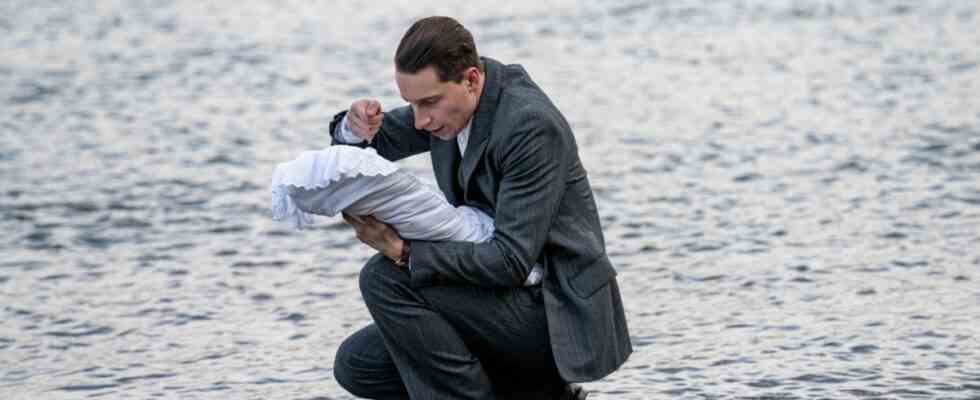How much do you have to change in changing times in order to stay true to yourself? How much do you have to invest, how much to risk? The author Dirk Kämper and the director Thorsten M. Schmidt talk about this in the television two-parter The white house on the Rhine. A film about German entrepreneurial spirit, about German tradition and national awareness as a contribution by ARD to the national holiday.
The little saga is about the Dreesen family of hoteliers, who still run the historic hotel in Bad Godesberg to this day. The two films span the period between the end of World War I and the beginning of World War II. Emil Dreesen, played by Jonathan Berlin, returns from the front with a secret in his soul that makes him vulnerable to blackmail.
At home he wants to get the hotel going again. With the help of his resolute grandmother (Nicole Heesters), he pushes his plans through against his parents (Katharina Schüttler, Benjamin Sadler). The external circumstances were also unfavorable: first the French headquarters moved into the house, later Adolf Hitler turned it into a kind of Führer side quarters. In between, a world economic crisis has to be overcome.
At your service: Fritz Dreesen (Benjamin Sadler) pays his respects to his guest Adolf Hitler (Max Gertsch).
(Photo: Krzysztof Wiktor/ARD Degeto/SWR/WDR/Zeitsprung Film)
How much to invest, how much to risk? These questions also arise in every film project. In relation to how original, how bold and demanding the filmmakers and their clients want to be.
Well: If the hoteliers had been as unambitious as this production, the Rheinhotel Dreesen would have had to declare bankruptcy quickly. It’s hard to believe that the director only demands the same two facial expressions from the actors. That the fog always soaks everything up when things get dangerous or mysterious. And as soon as everything turns out well, the sun shines. Otherwise, as a viewer, you wouldn’t understand what’s going on.
Above all, however, each character is a stereotype, without ambivalence, transparent and therefore boring. Emily: creative. His sister: dreamy. Their mother: bossy. The father: malleable. The maid: combative… No personal development, on anyone. Scenes from the beginning are downright derailed when the film adopts the reservations of the Germans towards the French occupiers and shows these military personnel exclusively as the creeps they are in the perception of the losers of the war. The main thing is that all uniform buttons are true to the original.
Do you have the baton? The white house on the Rhine long broken, something surprising happens: in the last half hour after Hitler came to power, Emil, his sister Ulla and her father Fritz suddenly have to maneuver and maneuver. Have to make choices between options that are all wrong. Must be guilty unless they give up everything and leave Germany. Now, finally, these figures are becoming disparate, yes: human. You get an idea of what this two-parter could have been. Would ARD take its audience seriously?
The white house on the Rhine, Das Erste, October 3, 2022, 8:15 p.m. Part 2 at 9:45 p.m.

